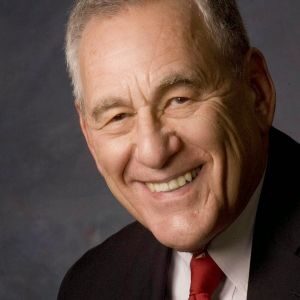The end of the year is a good time to correct some myths recently in the news.
1. UNEMPLOYMENT HAS NEVER BEEN SO HIGH FOR THIS LONG: For one thing, unemployment has been much higher – about 25 percent during the Great Depression of the 1930s. And back then it was above the current levels of about 9 percent for 12 years. In the current recession, serious as it is, the 9 percent rate has lasted for only three years.
The statement is characteristic of news reports that use “ever” and “never,” but really mean over a certain period of time, not forever. Often, these reports refer to the period since the end of the Second World War, but sometimes an even shorter period.
2. MAINE IS THE 50TH STATE FOR BUSINESS: According to Forbes magazine, Maine is the worst state for business. That rating is based on the factors that Forbes thinks are important, but the reader of news reports may not agree on those factors. And why does Forbes give some factors more emphasis than others?
More importantly, is Forbes using the same factors as a potential business might consider in making a decision on where to locate? Businesses may rate factors differently — does an investment bank and a seafood processor look for the same things?
Other more objective measures can produce different results. For example, the unemployment rate in Maine is lower than the rate in 32 states that came out higher in the Forbes report.
3. CHINA IS AMERICA’S BIGGEST CREDITOR: This statement makes it look like most of the federal debt is held by China. Most federal debt is owed to Americans – about 68 percent. The American people buy government bonds and notes, and it may be surprising that the largest single creditor is the government itself. That’s because the federal government lends to itself, like when the Social Security trust fund loans money to the Treasury to reduce the deficit.
What about China? It is the largest foreign creditor, but it holds only about eight percent of U.S. debt.
4. IN MAINE, MORE PEOPLE RECEIVE WELFARE THAN PAY TAXES: It is impossible to know if this statement is correct without knowing how “welfare” and “taxes” are defined.
If all government payments to anybody to provide them assistance is “welfare” and the number of income tax returns defines those who “pay taxes,” then the statement is correct.
But most people would exclude direct payments, loan guarantees and tax breaks for business from “welfare,” because they are meant to create jobs and private sector profits. A pre-educational program like Head Start and support for health care institutions, instead of the government operating them, are also not usually called welfare.
Taxes are not limited to incomes, but also are levied on sales, property, cigarettes, gasoline and other items, so that almost everybody is a taxpayer.
Here’s one possible mismatch. Payroll taxes fund Social Security payments, and one day they will not provide enough money to cover retirement expenses. Social Security may then have to be partly financed by general federal revenues. But, remember, for more than 50 years, its revenues have erroneously been counted on to cut the federal deficit.
5. MAINE SHOULD BUY CHEAP ELECTRICITY FROM QUEBEC: This is an old story that never dies. Though it has been promoted for years, it has never been possible. Why?
Electric rates in Quebec may seem cheap compared with rates in Maine. That’s because Quebec generates most of its power from huge hydro dams, so there is no fuel cost. The utility is owned by the provincial government, which develops dams as a way of creating jobs. The government also can have electric rates set at low levels that are politically popular in the province.
But when Hydro Quebec sells power to New Englanders, it wants to get the regional market price, which is higher than its own rates. The profit it gains here helps keep rates low back in Quebec. So it has no reason to give Maine the same break it gives its own people.
Maine has followed a different course. It has chosen to put a number of the best hydro sites off limits to dams and even removed some, usually to protect fish passage. And Maine doesn’t set rates politically. Power marketers sell electricity directly to Maine customers. Power suppliers set their own rates – at the same New England market rate as Quebec gets.







